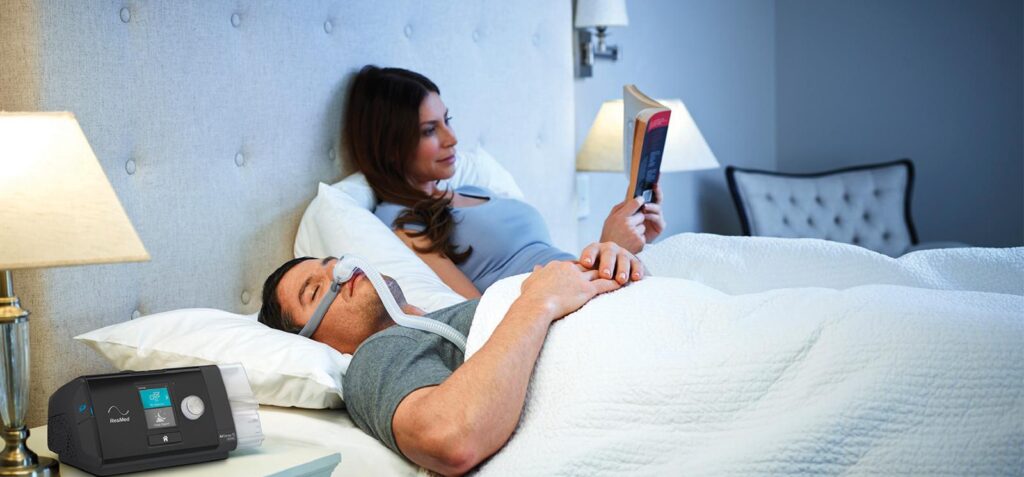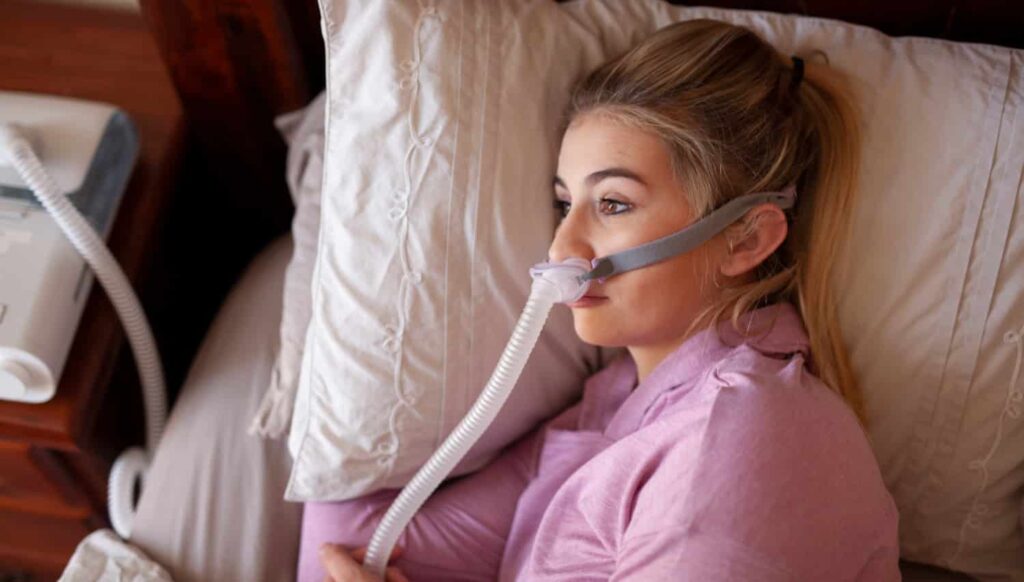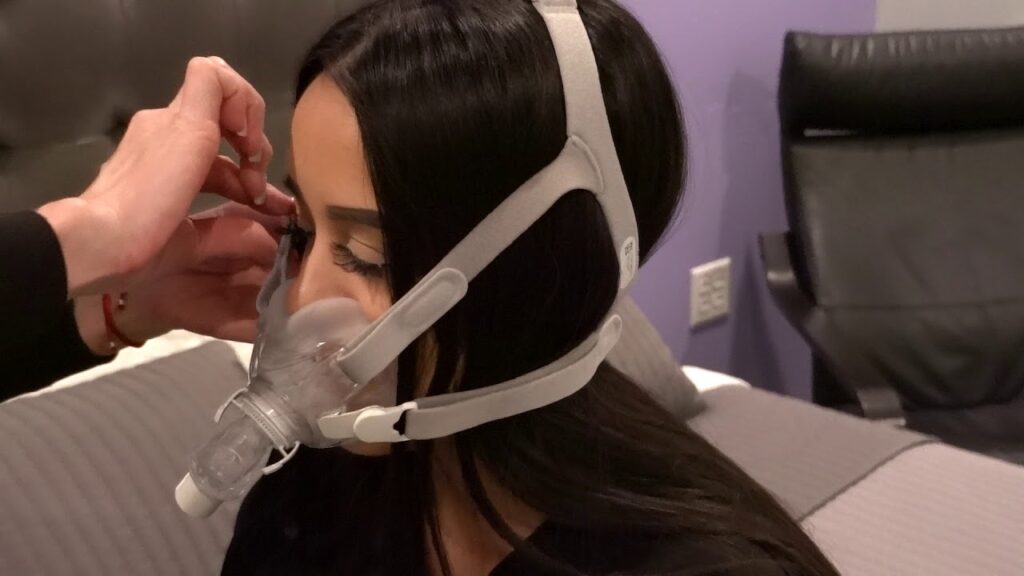In the treatment of sleep apnea, CPAP (Continuous Positive Airway Pressure) machines play a crucial role. These devices deliver a constant flow of air into the patient’s airways to prevent them from collapsing during sleep. However, like any mechanical device, CPAP machines can sometimes encounter problems that may disrupt their effectiveness. Understanding these common issues and knowing how to troubleshoot them can help ensure a successful and uninterrupted sleep apnea treatment.
Understanding the Role of a CPAP Machine
Sleep apnea is a sleep disorder characterized by pauses in breathing or shallow breaths during sleep. It can lead to daytime fatigue, cognitive impairment, and other health problems. CPAP machines online are commonly prescribed as an effective treatment for sleep apnea.
The Importance of CPAP in Sleep Apnea Treatment
By delivering a continuous flow of air, CPAP machines keep the patient’s airways open throughout the night, allowing for uninterrupted breathing and a restful sleep. This ensures oxygen supply to the body and reduces the frequency and severity of apnea episodes.
How Does a CPAP Machine Work?
CPAP machines consist of a motor, a mask, tubing, and a filter system. The motor draws in air, pressurizes it, and then delivers it through the mask to the patient’s airways. The prescribed pressure level is determined by a sleep specialist based on the severity of the individual’s sleep apnea. The correct pressure setting is vital for the effectiveness of the treatment.
It is important to note that CPAP therapy is not a one-size-fits-all solution. Patients may need to try different mask styles and sizes to find the most comfortable and effective option for them. Some individuals may initially find wearing a CPAP mask uncomfortable, but with time and adjustments, most patients adapt to it and experience significant improvements in their sleep quality and overall health.
Monitoring and Maintenance of CPAP Machines
Regular maintenance of CPAP machines is crucial to ensure their optimal performance. This includes cleaning the mask, tubing, and humidifier components regularly to prevent the buildup of bacteria and mold. Additionally, filters should be replaced as recommended to maintain air quality. Monitoring the effectiveness of CPAP therapy is also essential, and patients are often advised to undergo follow-up sleep studies to assess the treatment’s success and make any necessary adjustments.
Identifying Common CPAP Machine Problems
While CPAP machines are generally reliable, various issues may arise that can hinder their proper functioning. Some of the most common problems include:
Mask Discomfort and Leaks
One common problem is mask discomfort and leaks. Ill-fitting masks or worn-out seals can cause air leaks, leading to decreased therapy effectiveness and discomfort for the patient.
It’s important to regularly check the mask fit and condition of the seals to ensure a proper seal and comfortable fit. Adjusting the straps and replacing worn-out parts can help alleviate mask leaks and discomfort.
Difficulty Tolerating Forced Air
Some patients may find it challenging to tolerate the sensation of forced air delivered by the CPAP machine. This can cause discomfort, difficulty falling asleep, or frequent awakenings during the night.
To help patients adjust to the forced air, CPAP machines often come with ramp features that gradually increase air pressure to a comfortable level. Additionally, using a heated humidifier can alleviate dryness in the airways, making it easier to tolerate the therapy.
Dry, Stuffy Nose or Skin Irritations
The continuous flow of air from the CPAP machine can cause dryness and congestion in the nasal passages. Additionally, facial contact with the mask may result in skin irritations, such as redness or pressure sores.
To combat dryness and congestion, using a nasal saline spray before bedtime can help moisturize the nasal passages. Ensuring the mask is clean and properly fitted can also reduce the risk of skin irritations, with hypoallergenic mask liners being a potential solution for sensitive skin.
Noise Disturbances from the Machine
CPAP machines produce varying levels of noise, which can disrupt sleep for both the user and their bed partner. Noise disturbances can occur due to machine defects, aging components, or improper maintenance.
Regular maintenance, such as cleaning or replacing filters and inspecting the machine for any loose parts, can help reduce noise levels. Placing the machine on a stable surface and using a machine with advanced noise reduction features can also minimize disturbances during sleep.

Troubleshooting CPAP Machine Issues
Fortunately, many common CPAP machine problems can be resolved with some simple troubleshooting techniques. Let’s explore some common solutions:
CPAP therapy is a highly effective treatment for sleep apnea, but it can come with its own set of challenges. Understanding how to troubleshoot common issues can make your experience with a CPAP machine more comfortable and effective.
Solutions for Mask Discomfort
Mask discomfort and leaks can often be resolved by ensuring a proper fit. Trying different mask styles or sizes, adjusting straps, and using mask cushions or nasal pillows can help achieve a more comfortable and secure fit.
It’s essential to find a mask that not only fits well but also suits your individual preferences. Some masks are designed for active sleepers, while others prioritize minimal contact with the face. Exploring different options can make a significant difference in your comfort level during CPAP therapy.
How to Adjust to Forced Air
If you find it difficult to tolerate forced air, it may help to gradually increase the pressure over time. Starting with lower pressure settings and gradually increasing them can help your body adjust to the sensation of air pressure.
Additionally, practicing relaxation techniques before bedtime can help your body acclimate to the CPAP therapy. Deep breathing exercises and creating a calming bedtime routine can make the transition to using a CPAP machine smoother.
Remedies for Dryness and Skin Irritations
To alleviate dryness and nasal congestion, using a humidifier attachment with your CPAP machine can add moisture to the delivered air. Additionally, ensuring clean masks and proper mask hygiene can reduce the risk of skin irritations.
Proper cleaning and maintenance of your CPAP equipment are crucial not only for hygiene but also for the longevity of your machine. Regularly washing your mask, tubing, and humidifier can prevent the buildup of bacteria and mold, ensuring a safe and effective therapy experience.
Reducing Noise from Your CPAP Machine
To minimize noise disturbances, ensure that your CPAP machine is placed on a stable surface and away from obstructions. Regularly clean and replace filters as recommended by the manufacturer. If noise issues persist, consulting a sleep specialist or equipment provider can help identify the root cause and find potential solutions.
Noise from a CPAP machine can be disruptive to both the user and their sleep partner. Investing in a machine with advanced noise reduction features or utilizing white noise machines in the bedroom can create a more peaceful sleep environment.

When to Seek Professional Help
While many common CPAP machine problems can be resolved through troubleshooting, there are instances where professional assistance may be required. These include:
Persistent Problems Despite Troubleshooting
If you’ve followed troubleshooting steps and the issues persist, it’s essential to consult a sleep specialist or equipment provider. They can evaluate your situation, perform diagnostics, and suggest advanced solutions to address the problem.
When Your Symptoms of Sleep Apnea Return
Sometimes, even with a functioning CPAP machine, symptoms may return or worsen. This could indicate changes in the severity of sleep apnea or other underlying issues that need medical attention. Consulting a sleep specialist can help address these concerns and adjust the treatment plan accordingly.
If You Experience New or Worsening Symptoms
If you experience new or worsening symptoms while using a CPAP machine, it’s vital to seek professional help. Symptoms such as chest pain, shortness of breath, frequent headaches, or excessive tiredness may indicate other medical problems that require immediate evaluation.
However, it’s important to note that seeking professional help doesn’t necessarily mean there’s a major problem with your CPAP machine. In fact, it can be a proactive step towards ensuring your overall health and well-being. Sleep apnea is a complex condition, and sometimes, the underlying causes or contributing factors may change over time. By consulting a sleep specialist, you can receive a comprehensive evaluation that takes into account your specific needs and circumstances.
Additionally, professional assistance can provide you with access to the latest advancements in sleep apnea treatment. Sleep specialists stay up to date with the latest research and technologies, allowing them to offer innovative solutions that may not be readily available through troubleshooting alone. These advanced solutions can help optimize your therapy and improve your quality of sleep.
Furthermore, seeking professional help can also provide you with peace of mind. Dealing with sleep apnea can be challenging, and having the support and guidance of a sleep specialist can make a significant difference. They can offer personalized advice, answer any questions or concerns you may have, and provide ongoing monitoring to ensure your treatment remains effective.
In conclusion, while CPAP machines are highly beneficial for sleep apnea patients, occasionally encountering problems is not uncommon. Understanding these common issues and how to troubleshoot them empowers individuals to maintain optimal therapy effectiveness. By following proper maintenance guidelines, seeking professional help when needed, and ensuring comfort and adherence, individuals can overcome common CPAP machine problems and stay on track with their sleep apnea treatment journey.
Related: Tips for Keeping CPAP Machine Device in Top Condition

